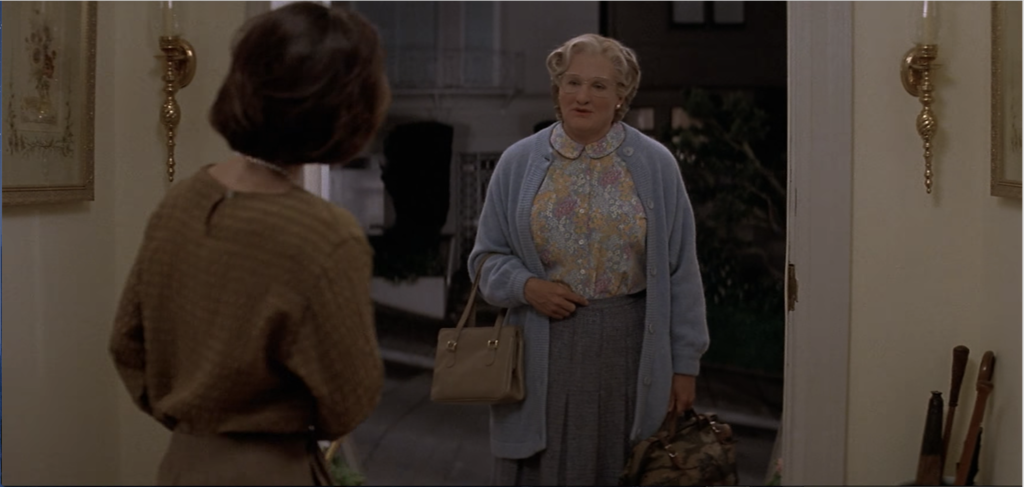
Film Matters: Please tell us about your article that is being published in Film Matters.
Sarah Matthews: My research began with a desire to investigate the one-dimensional and often negative on-screen representations of babysitters, as well as the formulaic narratives that have become inseparable from them. I was equally daunted and motivated by the fact that there appeared to be no research dedicated exclusively to this body of work. The major finding of my article is that babysitter films can be categorized into three basic storylines, each of which aims to respond to the gender and generational shifts of their production’s context.
FM: What research and/or methodologies do you incorporate in your article?
SM: My research consists of a survey of American feature films produced between 1948 and 2018 that privilege the figure of the babysitter. With this as my sole criterion, I analyzed a broad survey sample for common plots, themes, and characterizations. Filmic analysis was complemented by readings on genre theory and historian accounts of the cultural shifts that contextualize these films, such as postwar suburbanization and feminist movements. Miriam Forman-Brunell’s social history of the American babysitter provided invaluable insight on the link between historical perceptions of real-life babysitters and their representations in popular media.
FM: Describe the original context for/when writing this article while an undergraduate student.
SM: This article was initially produced as an independent senior research project completed over two academic terms. The original paper was about five times in length and was first condensed for presentation at the Society for Cinema and Media Studies’ Sixth Annual Undergraduate Conference.
FM: How has your department and/or institution supported your work in film and media?
SM: Knowledge Integration is an interdisciplinary studies program that encourages a broad knowledge base and critical thinking across disciplines. My department was more than happy to accommodate my courses in film studies that eventually culminated in an honours joint major. Without the freedom of the program’s structure, I wouldn’t have had the opportunity to pursue film theory so extensively.
FM: How has your faculty mentor fostered your advancement as a film scholar?
SM: Though Dr. Philippa Gates (Wilfrid Laurier University) is associated with another university and taught me in a course that was unrelated to my paper, she always made time for my questions and was eager to recommend readings. Her references to genre theory, as well as her encouragement of my ideas, were of extraordinary help as I embarked on a very broad survey with little initial theoretical framework to ground my research.
FM: How has the Film Matters editorial and publication process impacted the development/evolution of your article?
SM: Condensing my article for submission certainly made it a stronger and more succinct piece. Additionally, the revision process allowed me to revisit my ideas after having spent months away from them. In the time between my initial submission and the revision period, my ideas had a chance to percolate, and I was able to continue my literature review and gain new insight on my findings. Receiving feedback from the editorial board was also exciting and helpful.
FM: What audience do you hope to reach with your Film Matters article and/or what impact do you hope it has on the field of film studies?
SM: My film survey spans seventy years and is pervaded by repetitive, lowbrow plots and crude characterizations, especially of young women. Therefore, I believe that my research will intrigue a wide range of individuals interested in both gender and genre studies, especially the relationship between formulaic films and the culture that produces them. I hope that my article will give due critical consideration to a film canon that has largely lacked analysis from both scholars and audiences alike.
FM: What are your future plans?
SM: Right now I am working in television production in Toronto, but I haven’t ruled out applying for a master’s degree in film studies!
Author Biography
Sarah Matthews is a recent graduate of the University of Waterloo, where she earned an undergraduate degree in Knowledge Integration and joint Honours in Visual Culture. This article is a condensed version of her senior thesis project, which she presented at the Society for Cinema and Media Studies’ Sixth Annual Undergraduate Conference.




































